A Level Playing Field: MacBook Tools for Visually Impaired Law Students
inableAdmin
For visually impaired law students, the path to success often involves navigating unique challenges, particularly when it comes to accessing essential resources. However, with advancements in assistive technology, these students are bridging the digital divide and overcoming barriers in their educational journey.
Through the provision of accessible MacBooks equipped with assistive features, a selected group of law students with visual impairment are now empowered to learn, research, and engage independently in their studies. Here, they share how this technology is transforming their experiences and helping them build promising careers in law.
Marvin Masiali: Simplifying Studies with Assistive Technology
Marvin Masiali, a 19-year-old first-year law student, quickly realized the impact of having accessible technology for his studies. “With Pages, I can type my notes directly and submit them to my lecturers,” he shares. Marvin, who had previously recorded classes on his phone, now uses his MacBook’s voiceover feature for independence and privacy, especially during exams. “I no longer need assistance from sighted friends. It’s empowering to have control over my studies.”
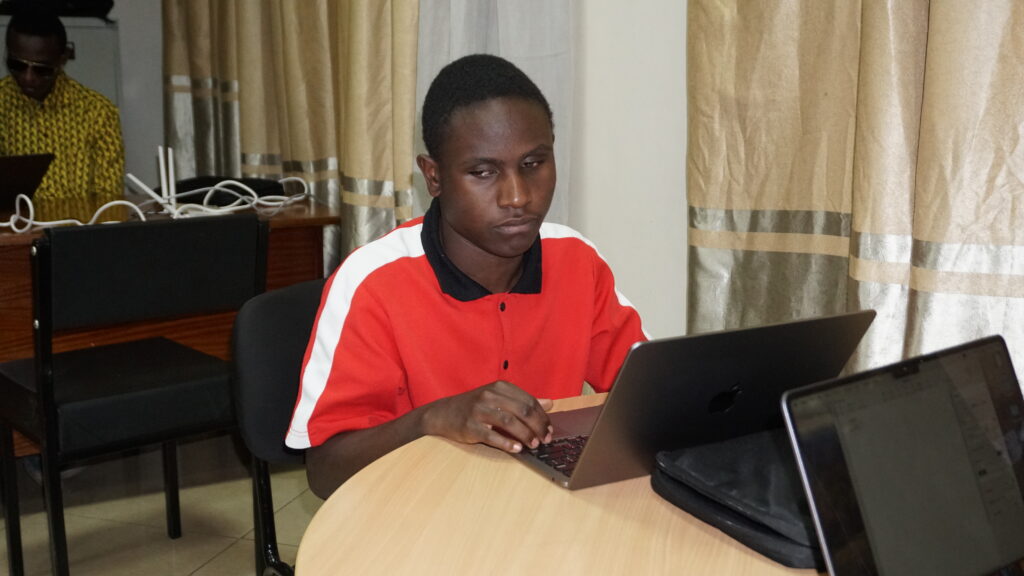
John Moses Ominde: Bridging the Accessibility Gap in Legal Studies
John Moses Ominde, a 21-year-old final-year law student, highlights the scarcity of accessible study materials for visually impaired students. “Technology like this MacBook closes the gap,” he explains. Features like Voiceover and Siri allow him to take notes efficiently and engage with online resources critical for his studies. “I can now attend online conferences and access legal materials that weren’t accessible before,” John says, recognizing the transformative power of assistive technology.
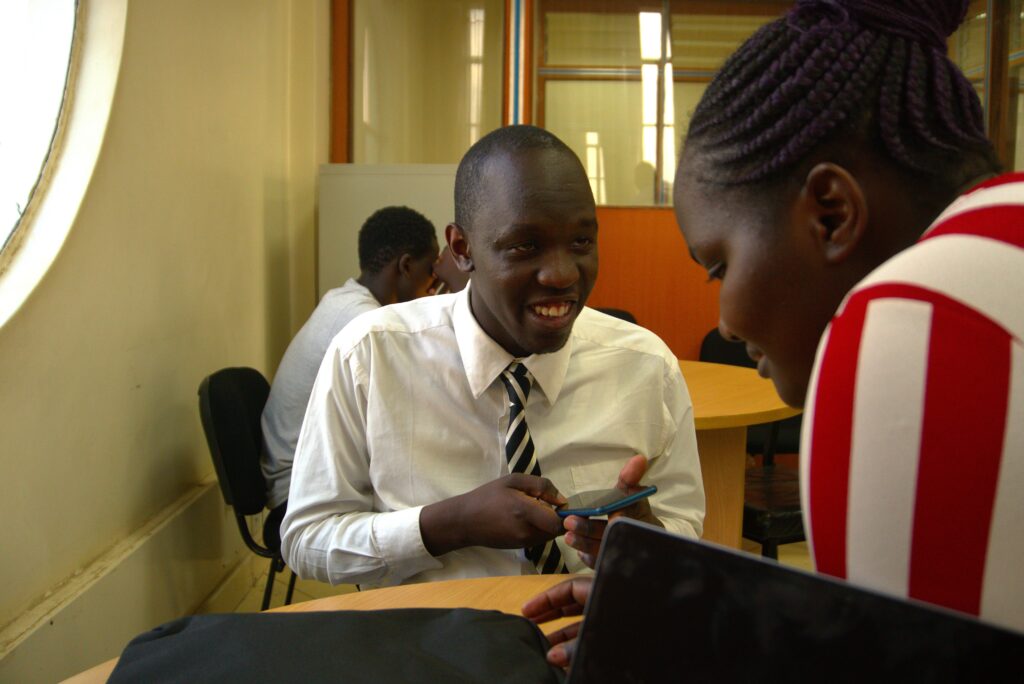
Brenda Mwende: Unlocking Research Potential in Law School
For Brenda Mwende, a first-year law student at the University of Nairobi, the MacBook’s tools have redefined her study routine. “Pages and Voiceover help me navigate my assignments and research,” Brenda explains. Limited access to Braille materials had made her studies challenging, but the laptop now provides her with a straightforward way to manage her workload. “With this technology, I’m able to keep up with my peers, despite the lack of hardcopy Braille texts.”
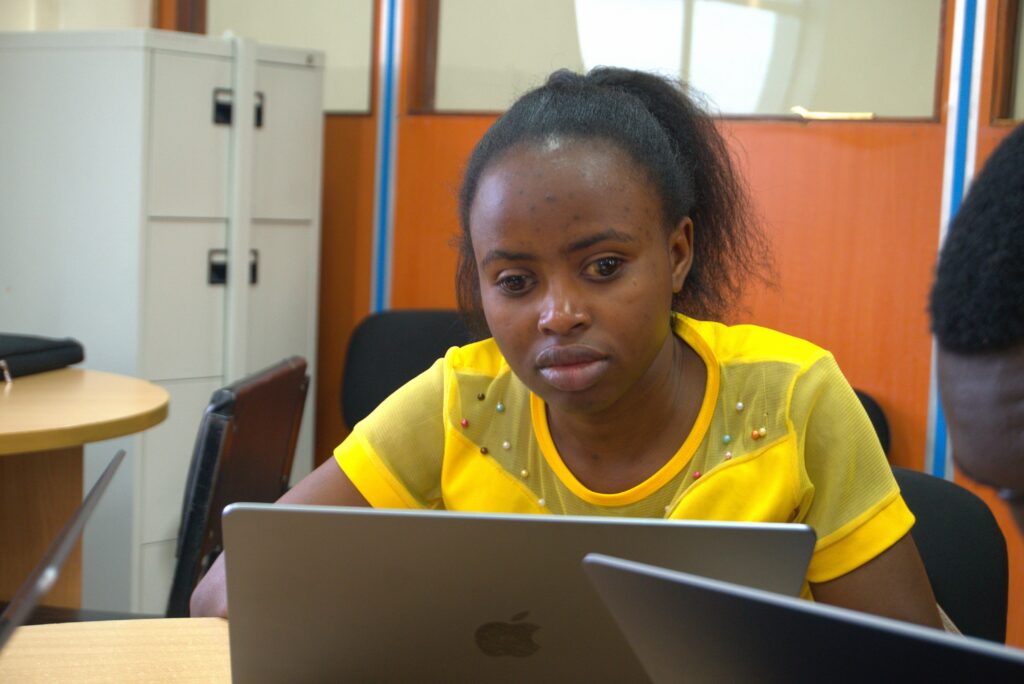
Elvis Apondi Odury: Overcoming Academic Challenges with Assistive Technology
Elvis Apondi Odury, a 21-year-old second-year law student, has faced various obstacles in accessing study resources. Previously, he recorded lectures on his phone, which had limited capacity. “Now, with Pages, I can take notes more efficiently, and Safari speeds up my research,” he explains. Elvis sees the laptop as a bridge to his dream of specializing in human rights law, stating, “This technology is crucial for my career. I can participate fully in class and conduct extensive legal research.”
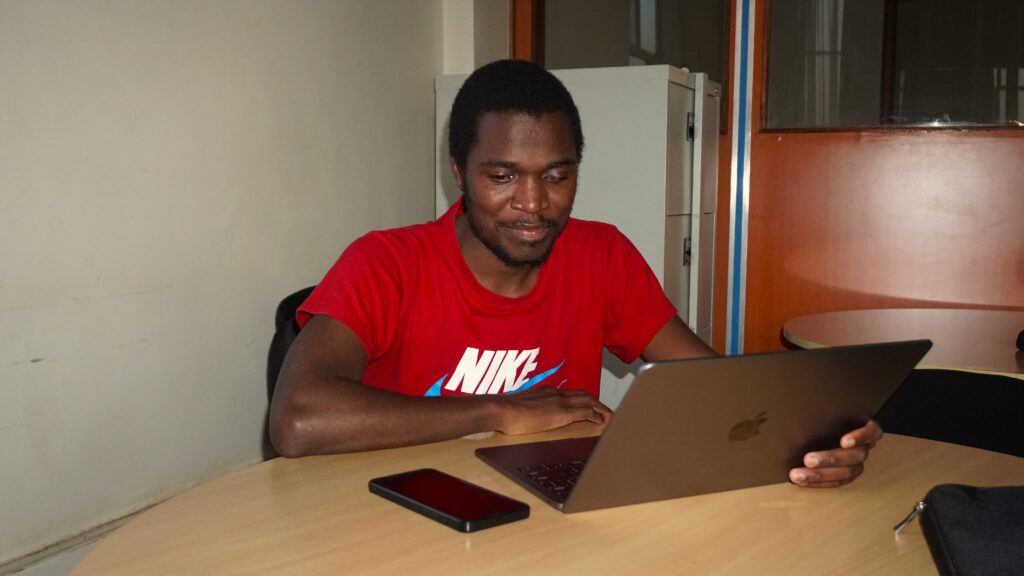
Nahashon Kimochu: Aiding Future Career Goals with Technology
Nahashon Kimochu, a 28-year-old third-year law student, aims to join the judiciary or an international organization. The MacBook’s recording feature is essential for him, allowing him to record lectures and listen back when needed. “The accessibility features help me manage study materials efficiently and stay organized,” he says. Nahashon believes this technology enables visually impaired students to reach their full potential in both academic and professional spaces, saying, “It’s a game-changer for inclusivity in legal education.”
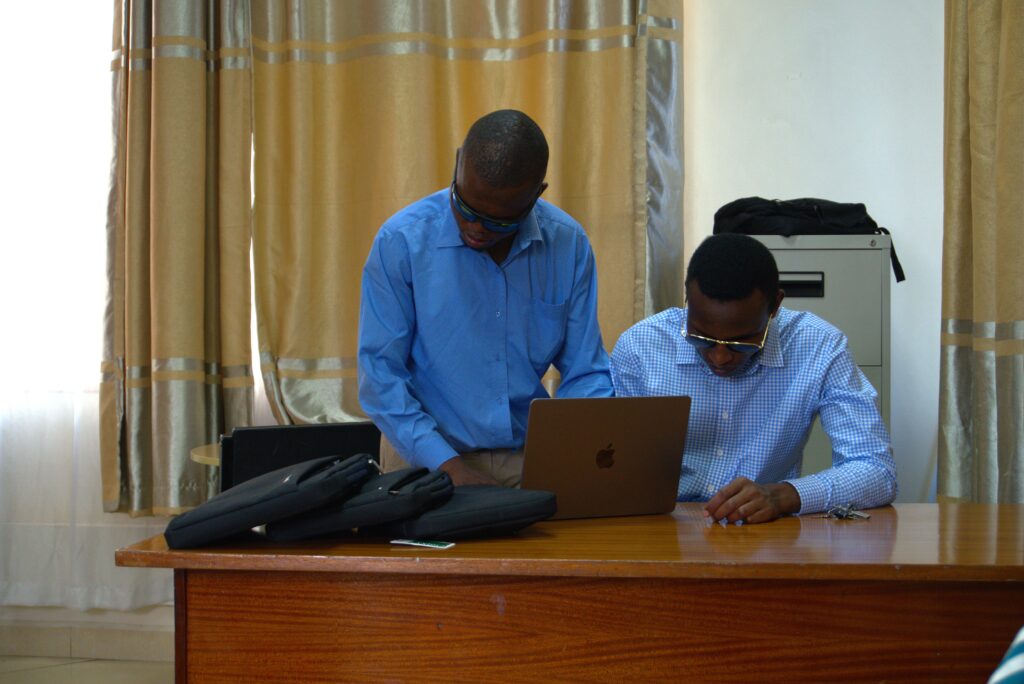
Philip Omele: Building a Foundation for a Future in Law and Technology
Philip Omele, a 20-year-old first-year law student at the University of Nairobi, has found that his new MacBook is essential for navigating the demands of legal studies. By using assistive features like Pages and Voiceover, Philip can efficiently complete assignments, conduct research, and manage data independently. Previously, he faced difficulties completing tasks with limited tech resources, but now he feels equipped to keep up with his peers and fully engage in his studies. “This technology makes learning easier,” he says, emphasizing the positive impact it has on his future ambitions in law and technology.
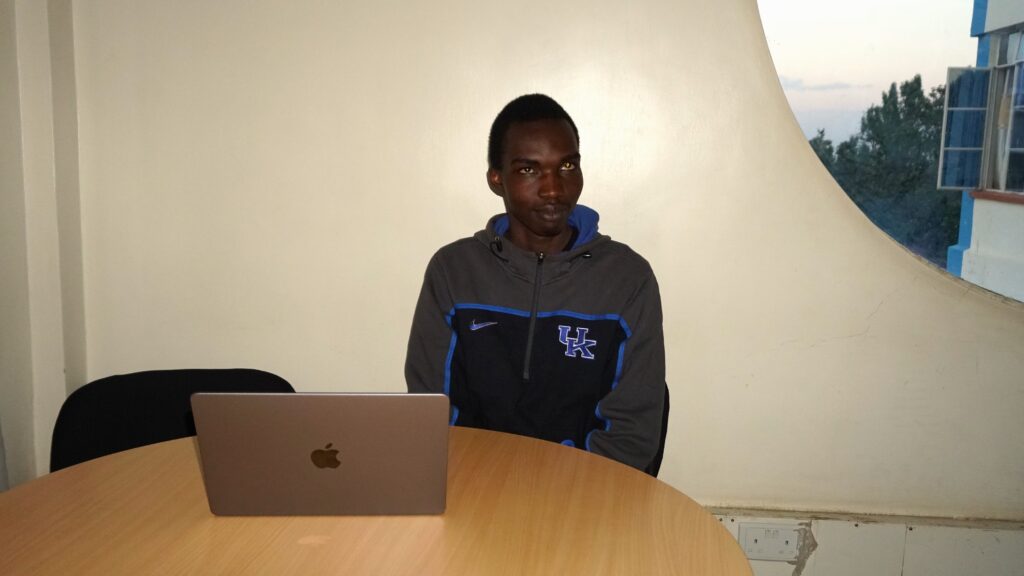
The journeys of Marvin, John Moses, Brenda, Elvis, Philip, and Nahashon underscore the transformative impact of assistive technology on visually impaired students. Through the support of inABLE and generous donors, these students are breaking down barriers in education, embracing technology, and building the skills necessary to succeed in their chosen careers. With initiatives like these, the digital divide for visually impaired students is narrowing, creating a brighter, more inclusive future for all.
Written by Lily Ronoh-Waweru, Strategic Communications Specialist